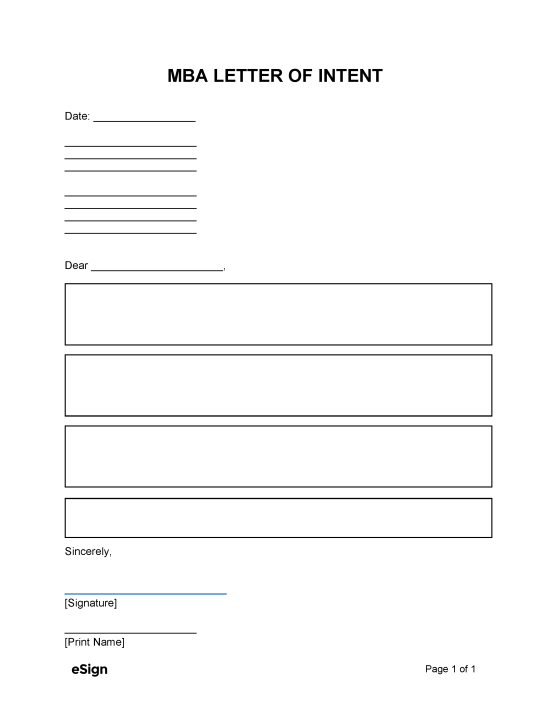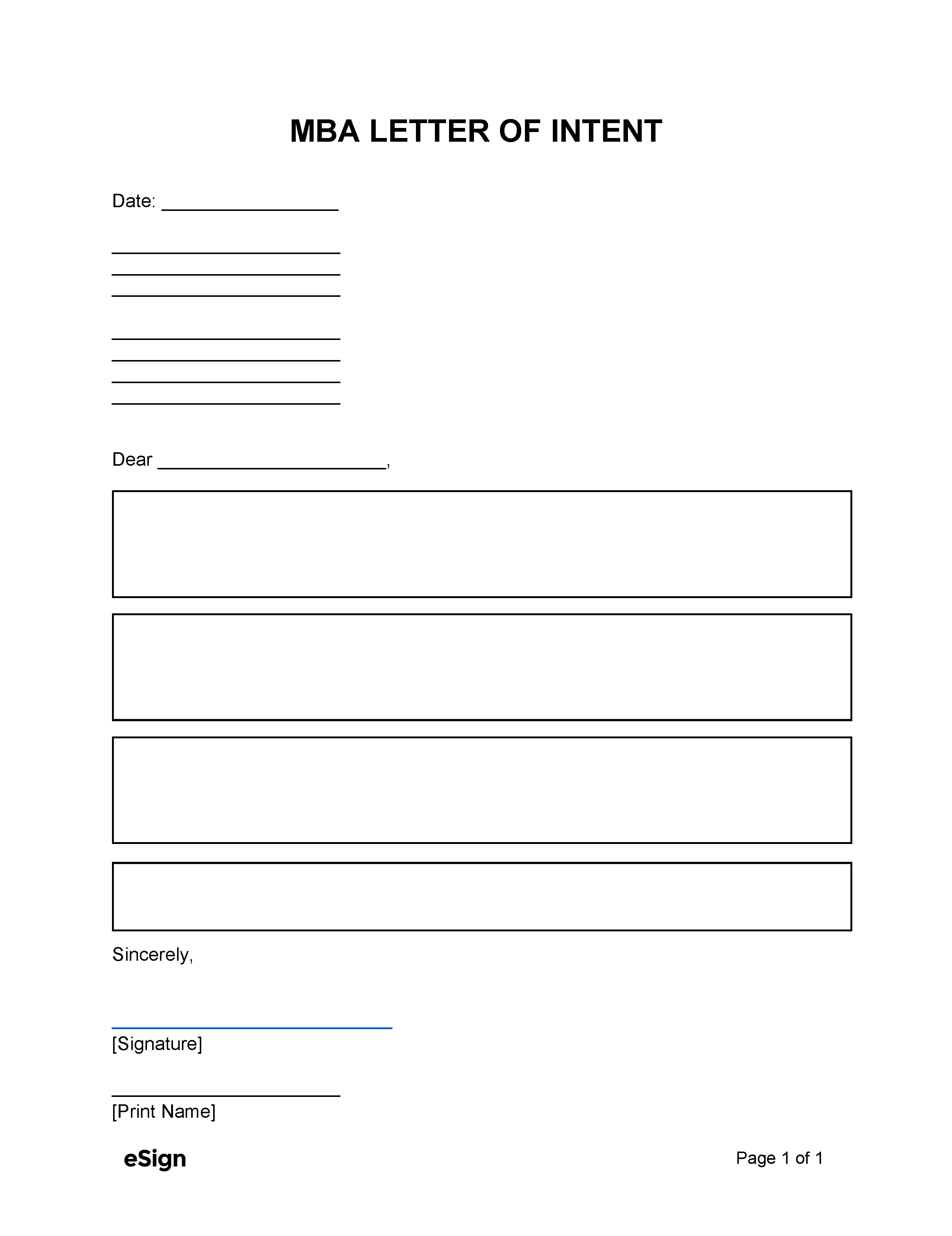Purpose of an LOI
What an LOI offers that other application forms don’t is a direct line of communication with the admissions committee. The content of the letter is personal, but the tone is professional, which gives the committee members a better sense of the applicant’s character, desires, and intentions, which can significantly increase their chances of admission.
A letter of intent is not always a required application document, unlike resumes, transcripts, or career goals essays. Still, it can be a valuable tool in improving a student’s odds of acceptance into an MBA program.
When to Send
A letter of intent should only be sent to the applicant’s top choice after the initial interviewing process.
It’s often suggested that applicants wait a month after their interview to send a letter of intent if they haven’t heard back from the admissions committee. An LOI can also be sent if they are notified that their name was added to the waitlist.
Sample
Download: PDF, Word (.docx), OpenDocument
MBA LETTER OF INTENT
[DATE]
[SENDER NAME]
[SENDER STREET ADDRESS]
[SENDER CITY, STATE, ZIP]
[RECIPIENT NAME], [RECIPIENT TITLE]
[SCHOOL NAME]
[SCHOOL STREET ADDRESS]
[SCHOOL CITY, STATE, ZIP]
Dear [RECIPIENT NAME],
Thank you for taking the time to read this letter and review my application. I am very enthusiastic at the prospect of becoming a student in the MBA program at [SCHOOL] and gaining valuable knowledge and insight from the program’s esteemed professors. I would like to take this opportunity to elaborate a little more on some matters we discussed in my interview on [DATE].
I have [#] of years of experience in [INDUSTRY] and have created a strong network in this field. Over the years, I have been able to build the foundation of my communication, leadership, and planning skills, and I am very eager to hone those skills even further. After visiting the campus and speaking with current students and alumni, I am positive that [SCHOOL] can provide me with the tools and knowledge required to take my career to the next level.
I understand that your school takes pride in its ability to create a heightened experiential learning environment, which undoubtedly increases students’ efficiency in learning and retaining skills. I am also very drawn to [SCHOOL]‘s reputation for having a solid network of talented professionals from diverse backgrounds. I believe collaborative learning is one of the best ways to broaden perspectives, enhance social skills, and prepare for an energetic and intensive work environment.
Thank you again for considering me as an applicant for the MBA program. This program is my top choice, and I would be honored to be accepted as a student. I would be happy to hear from you if you require more information or have any questions.
Regards,
[APPLICANT NAME]
Signature: ___________________
Letter of Intent vs. Statement of Purpose
A letter of intent and a statement of purpose both describe aspects of an applicant’s school, work, and personal life, but they function in slightly different ways.
A letter of intent is written in a letter format with a professional tone and focuses on expressing interest in a particular school or program.
A statement of purpose (not to be confused with a statement of intent, which is another term for a letter of intent) is formatted as a personal essay that expresses more detail about the person’s interests, experiences, and ambitions and how all these components line up to form their career and life goals.

